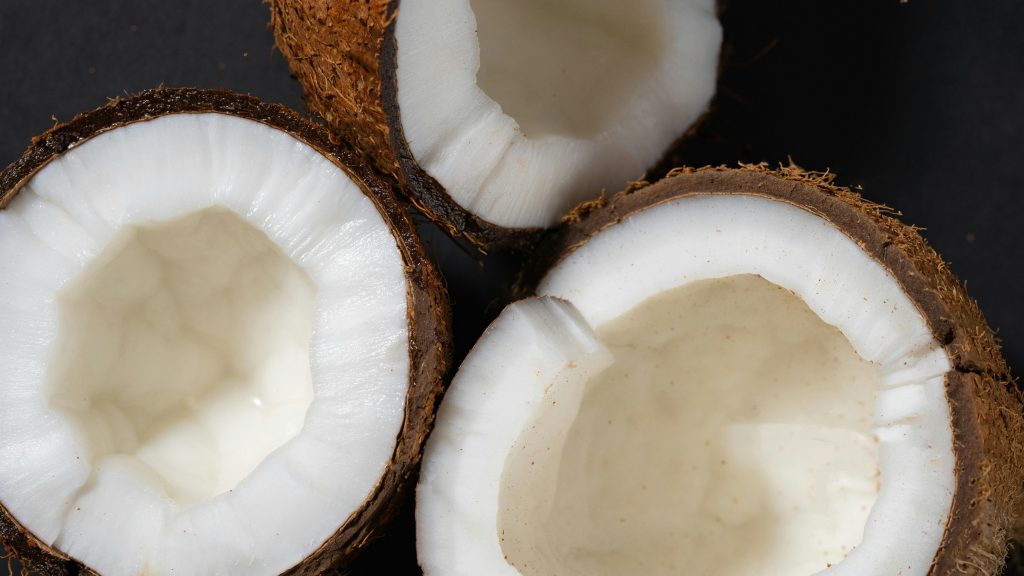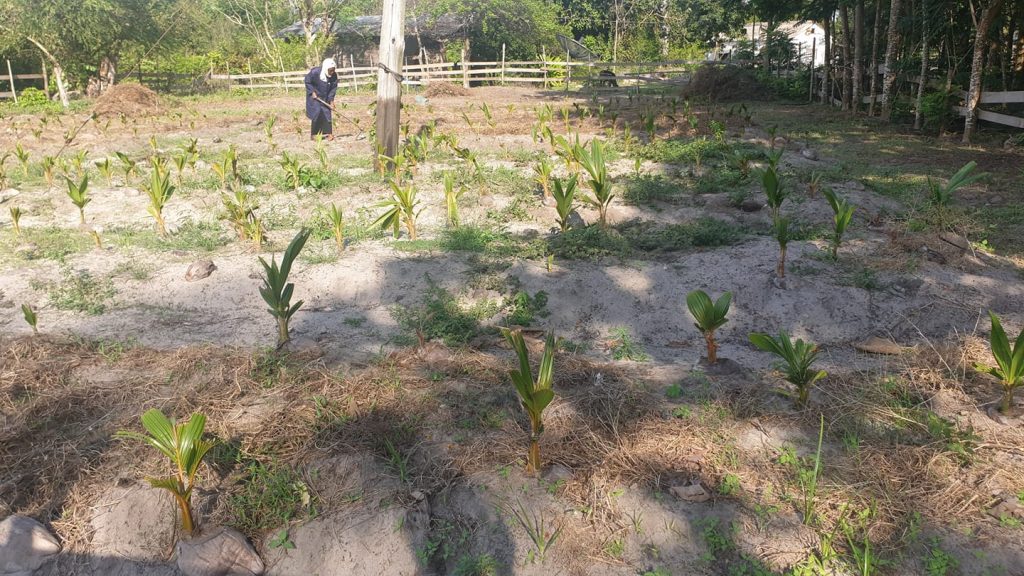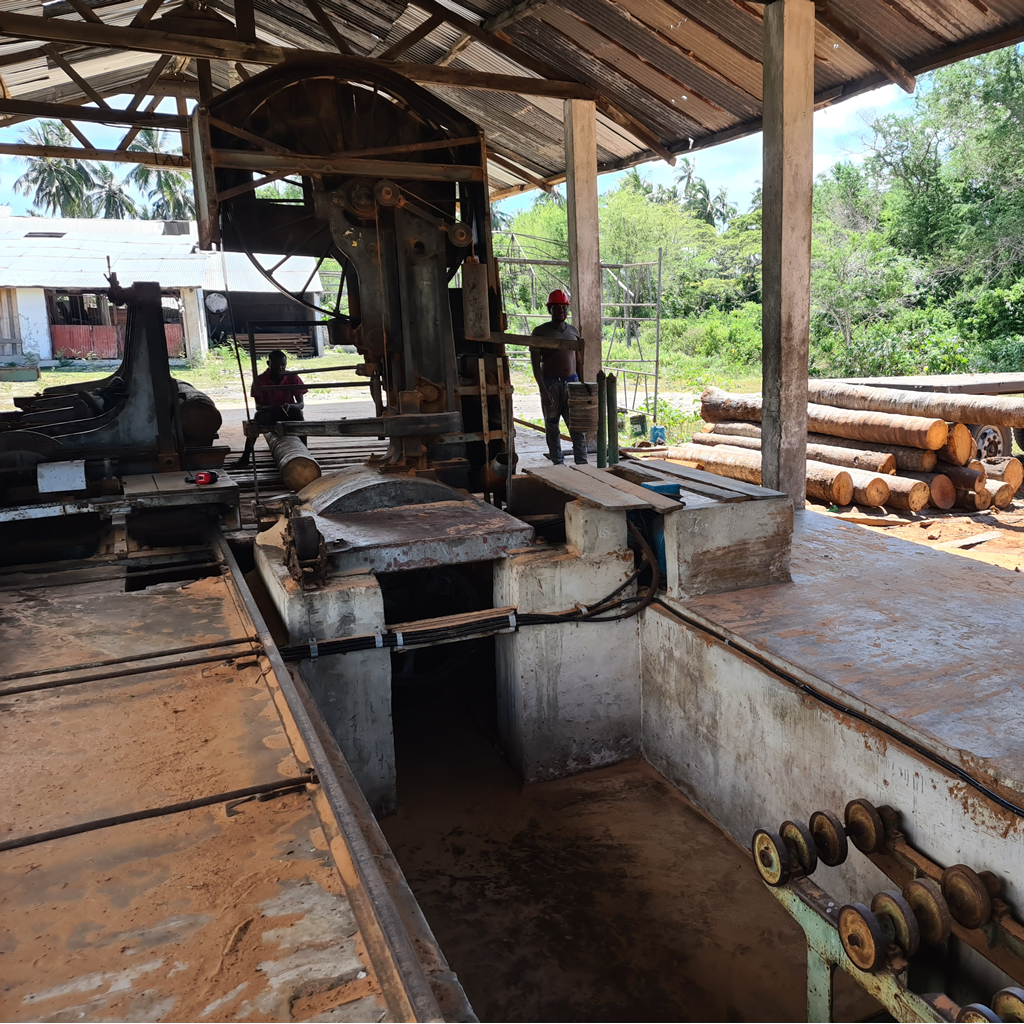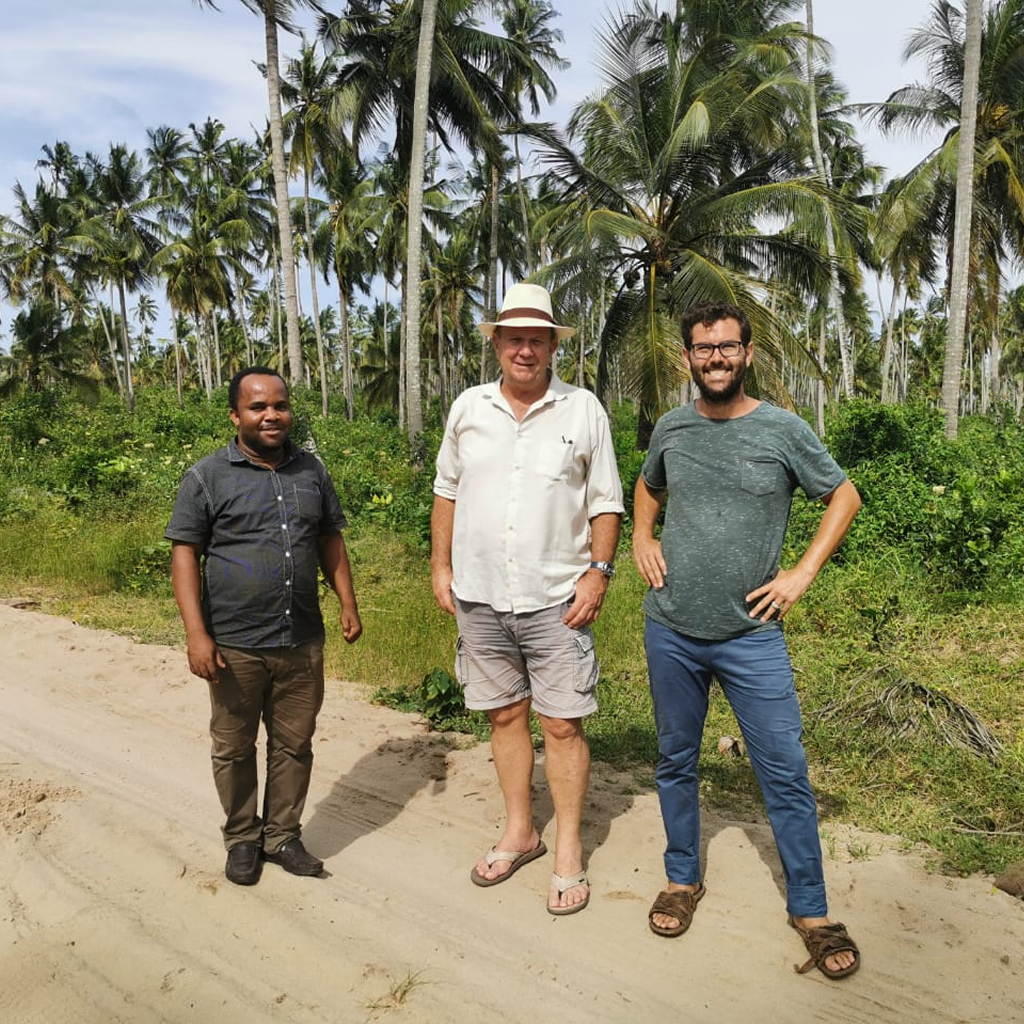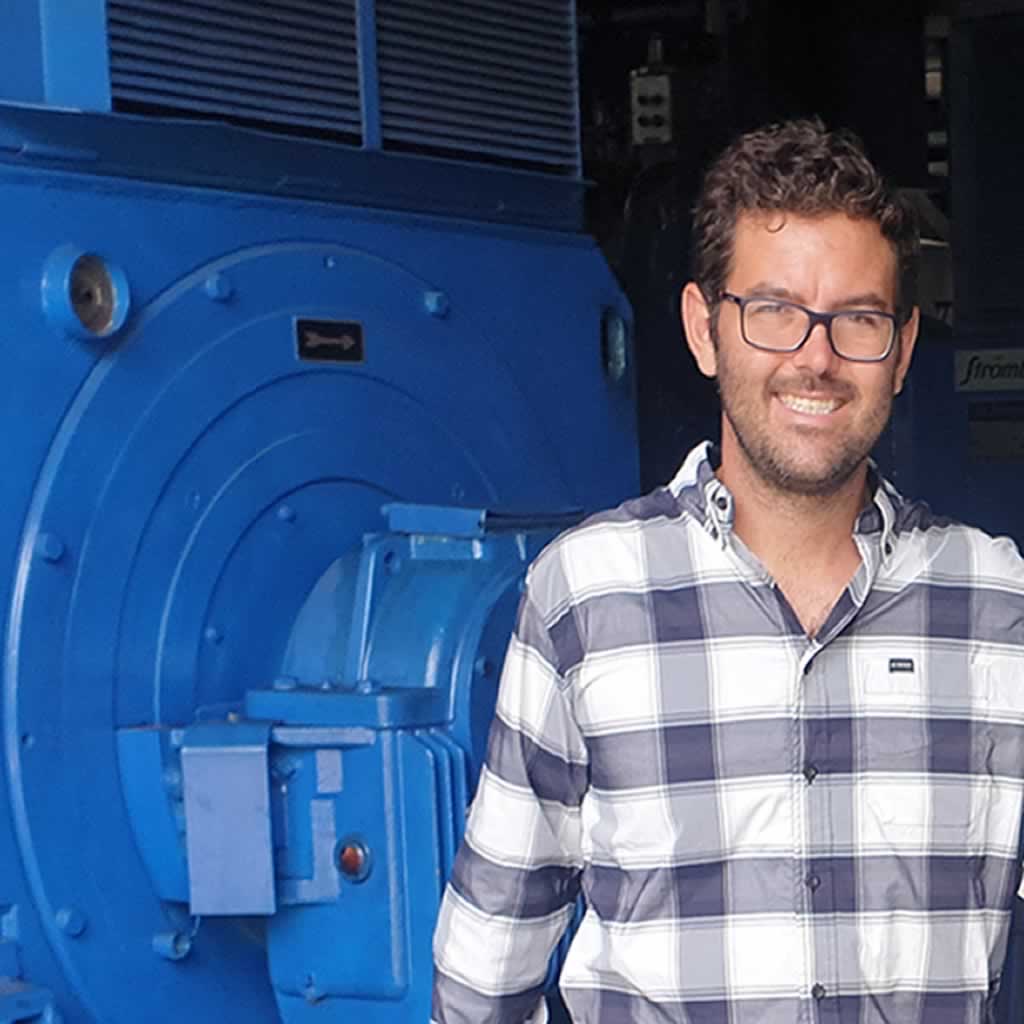
Daruis Boshoff took Coconut farming to the next level:
If he could advise his younger self, it would be simple: “Trust the process. Every challenge is a chance to grow.” Darius Boshoff’s journey was more than a story of success; it was a testament to the power of purpose, resilience, and innovation.
The Face behind the Kisiwa Farm and Energidrop Darius Boshoff
The man sat quietly, reflecting on a journey that had shaped his life in ways he could never have predicted. At 39 years old, he stood as the proud owner of Energidrop (Pty) Ltd and Kisiwa Farming (Pty) Ltd, two companies dedicated to sustainability and innovation.
“I grew up in a home schooling environment,” Darius began, reflecting.
The early lessons of independence and self-discipline had laid the foundation for his entrepreneurial drive. His family had instilled in him the importance of sustainability, a value that would later become central to his work.
His story had an unusual beginning in the nuclear industry. It was there that he realised the unsustainable practices dominating many sectors. “The turning point,” he admitted, “was the realisation that I could do more—contribute to a future rooted in renewable energy.” Transitioning into this field was a leap of faith, driven by a desire to create meaningful change.
Though he had no specific mentor, Darius drew inspiration from leaders and innovators in renewable energy, their pioneering ideas fuelling his determination. This drive led to the founding of Energidrop, a company created to address gaps in Africa’s renewable energy market. “We love to build projects and get things done,” he said, a quiet pride in his tone. Kisiwa Farming followed, embodying sustainable agricultural practices in East Africa.
Of course, the road wasn’t without its challenges. Infrastructure and technical resources were scarce. Yet, Darius thrived on adversity, creating localised solutions and forging strong partnerships. “Developing gasification and biogas systems for South Africa and Tanzania,” he shared, “has been one of my proudest achievements.”
Balancing his personal and professional life wasn’t easy. His days began at 5 a.m., juggling emails, coffee with his family, and meetings in Johannesburg. Yet, amidst the chaos, he found solace in running, hiking, and family time.
“I stay motivated by my passion for sustainability,” he reflected. His vision for the future was clear: to expand his reach, deepen his commitment to green energy, and inspire others to pursue sustainable ventures.
If he could advise his younger self, it would be simple: “Trust the process. Every challenge is a chance to grow.” Darius Boshoff’s journey was more than a story of success; it was a testament to the power of purpose, resilience, and innovation.
The business side of things at Kisiwa farming.
Quality Coconut Products,
Less waste & More Renewable Energy.
Globally, the demand for coconut products is on the rise. East Africa can help fill this gap if key challenges can be overcome. In Tanzania about 300 000 families are directly dependent on the crop in the eastern coastal region. Still there is limited beneficiation and local value add in this area mainly due to lack of knowledge, capital and expertise. Another fundamental blockage to utilising the fruit and trees for producing higher value products is the availability of stable and reliable electricity. Energidrop, a South African based renewable energy developer and engineering firm, has collaborated with stakeholders in Tanzania to establish Kisiwa Farming Limited on Mafia Island, just off the east coast of Tanzania. Plantations of coconut groves requires constant care and maintenance and with reduced yields from poor soils, ageing stock and pests, many local small holdings are no longer economically viable. Kisiwa Farming has secured more than 2700 Ha of plantations that form part of its rejuvenation process. This also provides the security of feedstock to produce coconut products and renewable energy for the greater island mini-grid.
Vision
A world where Kisiwa Farming Limited revolutionises the value creation from marginal, depleted and neglected plantations to ensure optimal multi crop operations and maximum local beneficiation. Underpinned by modular combined heat and power integration that catapults developing countries forwards in an inclusive manner.
For every Litre of coconut oil, more than 10 kg of residues are generated. By converting these residues into additional products and the final residues into energy, we are able to make the most of each bit of produce will ensuring char ash nutrients return to the plantation with fortified organic nutrients to close the loop.
Our Mission
Farming has been the unsung hero of many economies. The creation of products to create substantial local value is essential for governments, citizens and businesses alike. We are completely committed to operate in cooperation with our community to find the much-needed balance between profit, environment and social responsibility.
Our experience has taught us that by implementing an audacious goal in smaller chunk sized steps, one can successfully grow something meaningful and sustainable. This approach enables a close cooperation with all involved and exposes the company to a lower degree of risk. Kisiwa farming.
Coconut Farming in General:
A Sustainable Solution for Renewable Products
Coconut farming, a cornerstone of tropical economies for centuries, offers versatile benefits ranging from food to renewable products. By harnessing this crop, we can advance sustainable practices and reduce dependency on fossil fuels.
Coco Peat: A Key By-product
Derived from coconut husks, coco peat is a sustainable, multi-functional growing medium offering:
Benefits: High water retention, good aeration, neutral pH, weed suppression, and eco-friendliness.
Uses: Found in potting mixes, hydroponics, soil amendments, composting, and erosion control.
Types: Includes low EC, washed, unwashed, and compressed coco peat blocks.
General Benefits of Coconut Farming
Food Security: Supplies coconut water, meat, and oil.
Economic Stability: Provides consistent income for rural farmers.
Environmental Resilience: Thrives in poor soils, aiding in land utilisation.
Renewable Products from Coconut Farming
- Biofuels: Coconut oil as biodiesel.
- Biogas: Energy from husks and shells.
- Activated Carbon: Shells used for filtration and purification.
- Coconut Fiber: Material for textiles, construction, and paper.
- Coconut Oil: For food, cosmetics, and medicine.
Challenges and Opportunities
Coconut farming faces climate change impacts and market volatility. However, sustainable practices and product innovation can bolster its economic and environmental viability.
Coconut farming is pivotal for a sustainable future. Supporting farmers and renewable product development can help reduce reliance on fossil fuels while promoting environmental health and economic growth
https://search.app/YhYvRhqc4T8g92BYA
